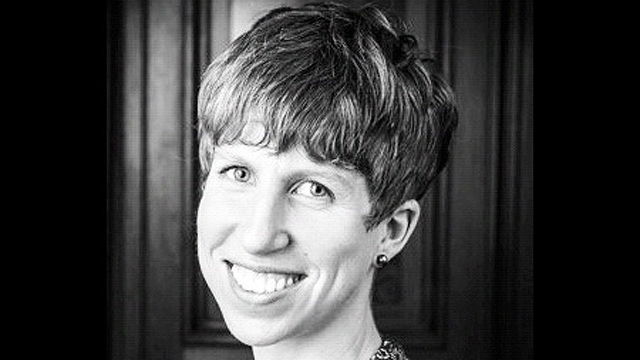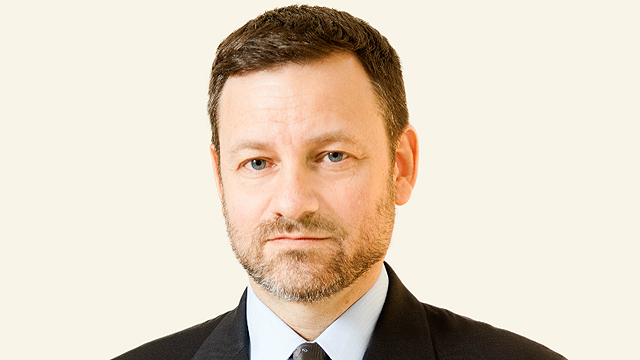
Reform leader: Orthodoxy in Israel jeopardizes Judaism
Rabbi blames Israeli policy for rising numbers of American Jews who lose touch with community, Israel. 'They disconnect from Israel because it doesn't respect them,' he charges
Up until 10 years ago it would have been enough to sneak a peek in someone's ID card to know whether they're Jewish or not.
Though the High Court of Justice has since erased the nationality clause from Israelis' IDs, the data is still collated by the population census, and the Central Bureau of Statistics releases annual counts of the number of Jews residing in Israel (6,042,000, according to the last census).
But in the United States, where religion and state are separated, the apparently simple question of counting Jews becomes slightly more complicated.
As no one is formally asked to disclose their religion, only surveys enable some measurement of the number of Jews in the country. For that reason statisticians are divided on whether the US is still the home to the world's largest Jewish community.
According to these surveys, the percentage of Jews in the US remained stable in recent years, fluctuating around 2%.
But more interesting than numbers are the internal divisions inside American Jewry itself.
Contrary to the Israeli classification of haredi/religious/secular, American Jews define themselves (or more accurately, are defined in surveys) as belonging to various sects – or as non-adhering to any sect.
Jacobs (R) (Photo: Noam Galai)
A comprehensive 1990 survey found that 38% of American Jews are reform Jews, a very small sect in Israel, 35% are conservative, 6% are Orthodox (haredim and "modern haredim") and 10% consider themselves as "just Jewish."
But since then, these figures have seen a dramatic turn.
In 2012 surveys showed a decline in the percentage of reform Jews to 34% and of conservatives to 26%. The rate of orthodox Jews rose to 8%, explained due to natural population growth.
But the number of Just Jewish leaped to 25%.
'Orthodox Judaism is a coersive force'
Despite their decrease in numbers, reform Jews are still the largest and most prominent sect in North American Jewry. Their president, Rabbi Rick Jacobs, blames Israel's religious policy for what he terms a "crisis."
"The biggest problem today between Israel and American Jews regarding religion is that Orthodox Judaism is a powerful, coercive political force in Israel," Jacobs told Ynet several weeks after the election of Israel's new chief rabbis, both of orthodox leanings.
"In Israel, Judaism and democracy are both harmed by this unholy alliance. By accepting Orthodox rulings as law, the Israeli government has brought Israel –and the Jewish people—to this current crisis," he charged.
At the time of his comments, Jacobs was participating in the Ruderman Foundation Seminar for Israeli journalists in New York, alongside conservative and orthodox leaders, including conservative Rabbi Steven Wernick and Yeshiva University President Richard Joel, in an all but impossible photo-op in Israel.
Reform, conserative, orthodox Jews, in one table (Photo: Noam Galai)
"North American Jewry, especially younger Jews, simply don’t understand why the Judaism that they know and love is not recognized by the Israeli state," Jacobs said at the seminar.
"This is especially true concerning the role of women. Women are completely equal in every aspect of how we practice our Judaism—it is essential that the same be available in Israel.
"Ultra-Orthodox Judaism is a legitimate choice for those who chose it; but it must no longer be the default position of the Jewish state.
"Too many Diaspora Jews are disconnecting from an Israel that does not honor, reflect or support their core Jewish commitments.
"Our Movement has been clear consistently about our love for the State of Israel. But we expect that we –and all Jews—have the same rights in the Jewish state that we have in every other country.
Usually sidelined as an esoteric debate in Israel, Jacobs explained that the Women of the Wall issue is a top priority on the reforms' agenda.
"How is it possible that a Jewish woman can actually be jailed in the Jewish state for praying the Sh’ma out loud while wearing a tallit? What kind of message does that send to women all over the world and to Jews worldwide? We expect that the situation will change in Israel so that all forms of Judaism can thrive and flourish," he said.
Just Jewish - common concern?
As said, over the last two decades American Judaism had to contend with the statistical newcomer "Just Jewish." But what does being Just Jewish mean?
In actuality, the term applies to those who did not tick any particular sect on the survey and do not attend a synagogue.
Prominent rabbis from various sects have voiced a common concern of the rising figures of Just Jews, worrying that their ties to Israel are weakening.
But self-described Just Jews have a different take on the issue.
"I don't believe that the growth of a 'Just Jewish' constituency should be any cause of alarm for the Jewish community as a whole," said Marjorie Dove Kent, CEO of Jews for Racial and Economic Justice.
Marjorie Dove Kent
Dove Kent, 33, from Brooklyn, emphasized that as the number of Just Jews grows, so does the number of Jewish groups and organizations promoting social causes, which she sees as a sign of the Jewish community's "vibrancy."
"At another point in history, you can read article after article of Jews bemoaning the start and rise of the Reform movement - and how it was the end of Jewry. Now people bemoan the move away from the Reform movement as the end of Jewry. There has been throughout history a varied Jewish existence, whether that has meant secular, religious, or some other category altogether," she said.
Will Schneider, who runs the Slingshot Foundation, a Yellow Pages for Jewish foundations, had a similar point of view.
"'Just Jewish' doesn't mean 'not actively Jewish,'" Schneider argued. "They can still educate their kids, observe holidays, and learn from thousands of years of wisdom."
Nevertheless, they and others admit that Just Jews' ties to Israel are becoming more lax.
The reasons, they claim, are varied: One of the most significant is the question of "Who is a Jew," and the de-facto ostracism of a large group of Americans who consider themselves and are considered by their environment as Jewish, but are not viewed as such in Israel.
Other reasons cited are the lack of civil marriages, the staled talks with the Palestinians and general lack of interest in Israel.
However, some claim that summer camps and projects such as Birthright Israel have some influence in the opposite direction.
Jacobs is also aware that times are changing: " There are many ways to be Jewish today. It’s critical to engage Jews—of all ages—both inside and outside the walls of our synagogues. We can’t wait for Jews to come to us; we need to go to where they are and, we need to be open to the different gateways by which people express their Judaism.
"I believe that this is a tremendously exciting time for world Jewry; the only danger is if we enforce a rigid, ritualistic Judaism as the one and only true Judaism, which will only alienate people who would otherwise want to be part of our amazing Jewish journey."
Americans first, then Jews
According to Jay Ruderman, founder of the Ruderman Foundation, though dialogue between Israel and the Jewish community is intensive, Israeli officials' understanding of the Jewish community is limited.
Jay Ruderman (Photo: Noam Galai)
Ruderman said Israelis mostly address American Jews through the prism of aliyah. "But that will not happen. Of course, I made aliyah, but this step is right only for some Jews. Birthright Israel is also a positive thing, but it's not enough.
"American Jews, like Jews from the rest of the world, should not have voting rights in Israel, but their opinion must be heard and taken under consideration, when critical decisions on Israel's future are on the table."
Improving ties between Israel and American Jewry is a top priority, he said, since "many of the young American Jews are already the fourth or fifth generation in the US.
"Their grandparents and maybe their parents dealt with limits on university applications and other difficulties, but today's reality is completely different.
"In Israel they think they're first Jews and then Americans, but the youngsters see themselves as Americans first of all."
Ruderman claimed that the Israeli discourse on American Jews is "give money and political backing," but "it's much more complicated. Israel would have a tough time without US support, and the Jewish community has a large influence on the US.
"So Israel should not take American-Jewish support for granted."
- Receive Ynetnews updates directly to your desktop














